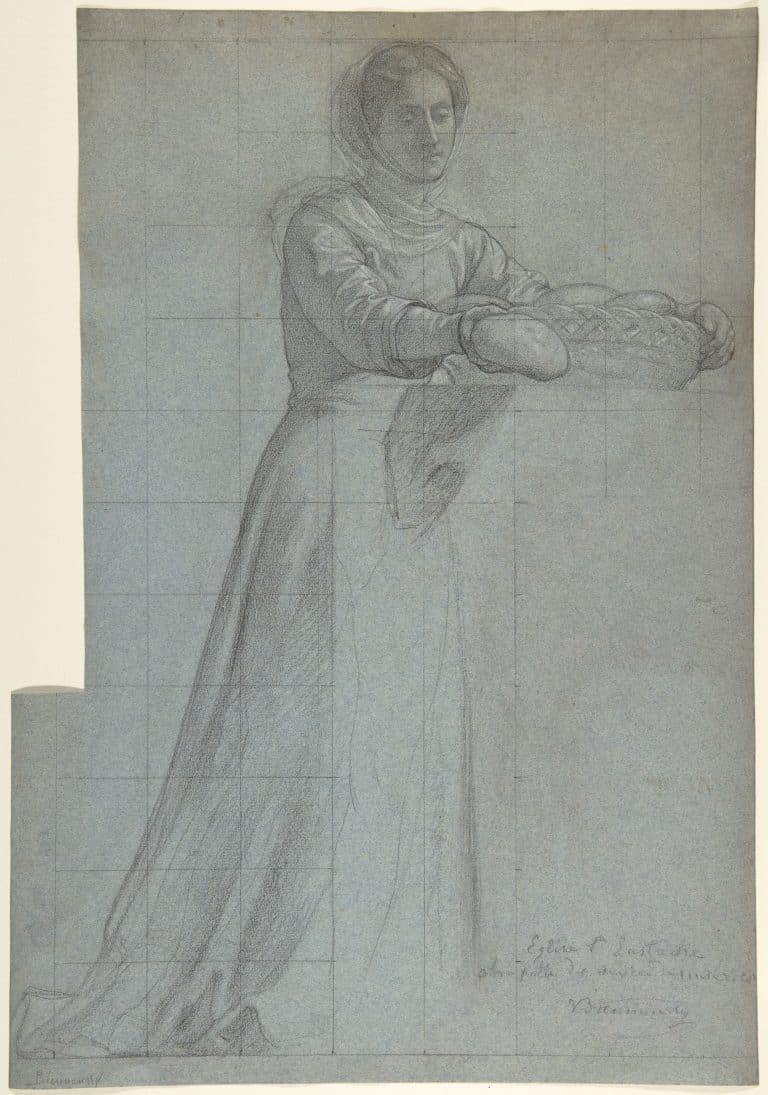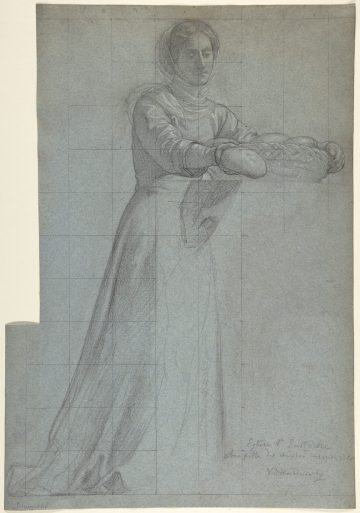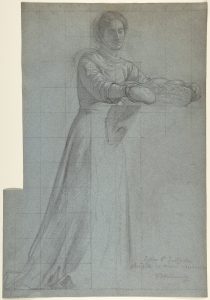by Anonymous
“You served us crumbs, you see, and we hungered for our own bowls of bread and milk,” wrote Linda Sillitoe, punctuating her indignant sadness in the poem, “An Elegy in Lowercase (For President Spencer W. Kimball).” Today I learned that women of the church are being served another crumb–the ability to stand as official witnesses to baptisms and sealings. We have been extended a tiny morsel. Not only is it the tiniest of crumbs, but it is made smaller by the fact that any baptized child can also act as a witness to a baptism. Because if women are capable of doing it, so are children, so saith the patriarchy.
I’m reeling from the Don Draper-esque nature of all of this. “Let’s give these unruly women something they want, and then pat their heads and offer it to the children on their laps.” I imagine the prophet sucking on a cigar with his hair slicked back in a three piece suit as he talks about it with his peers–an exclusive club of powerful men, almost all of them white. “That oughtta keep our little women satisfied enough,” he says, tapping ashes into a nearby tray.
When I went through the temple for the first time, I was struck by what I saw–not because of the clothing or the ceremonies, but because of the women. Women were administering ordinances to me. Women participated in ways I could hardly imagine them participating in my ward at that time. Soft hands were laid on my head, on my shoulders, on my back. They pressed tokens into my skin, anointed me with oil. I saw Eve in the garden, and I knew that she was powerful, knew that she held keys that Adam did not. I mentally pushed away the parts of the ceremony that subordinated her, telling myself that really, her obligation was always to God, just as Adam’s was. My gut, my soul, my heart knew who she was, who I was meant to be.
I’ve always loved the temple and cherished my time there, and now I see some of the reasons. It is a place where I feel my power, feel that God knows me, and I Them (though I saw Them as Him in the beginning). In the temple, the truth of who I’ve always known I was comes to fruition. Sitting in a plush, velvety chair, I saw a man and a woman presiding over the group together. I partook of the fruit, sank my teeth in and savored it. Savored the way God spoke to me in the quiet repetitions of the promises I made. I didn’t know until recently that our church wasn’t always so male-centric. Didn’t know the relief society was intended to be its own organization, presided over and run by women with their own keys.
I grew up in a church where I was told my loud mouth was not right. Where my decisive, directive nature was wrong. Those traits were for men, not for me. Strength and leadership were for boys, not for girls. My job was to support, sustain, uphold someone else, not be someone myself. In Merry Miss I made a necklace of all the woman things I learned to do there. Wooden beads in different shapes represented things we’d done — a little wooden spoon for cooking, a miniature birthday cake for cake decorating, a spool for sewing, other miniature craft items. Domestic skills like ironing or making small toys for younger children out of found objects were represented there as well as childcare and babysitting classes. These, I knew, were my jobs. My place in the world. At the direction of other women, I crafted this thing with my own hands and placed it around my own neck, my personal silvery chains (Sillitoe). I won’t pass the sacrament. I won’t go home or visiting teaching. I won’t have a purpose or a voice in the church except to cheer on the men as they do all of those things. “It will prepare you for marriage,” they tell me. You’ll be a good helpmeet for your husband.
It worked so well, the indoctrination. My bullheaded, blunt, directive nature led me shamefully through life until I got married, and then I knew that I could no longer do that. It was my job to let my husband preside, let his educational and career goals take the lead. I needed babies, and I needed them soon. I’d done all the right things–stayed chaste, went to church, read my scriptures, went through the temple, got sealed, kept up good grades–and still the babies didn’t come like they were supposed to. That was the first hit against this identity the church built for me. The one they thrust on me when I was small. Eventually I adopted and became a foster parent, but that isn’t enough. My body exists, I was told, to create babies. That was my part in tandem with the priesthood, and I couldn’t do it. My body wouldn’t do it. The one power I was told I had did not exist. I did not exist.
I pulled myself out of the sinkhole of infertility to live a somewhat functional life. My daughter (adopted) became the center of my life. I had a self again, and that self was her. She also packed a powerful punch of serotonin every time I held her, looked at her, cared for her. But over a decade into marriage I had suppressed myself so long, I was breaking apart. Suppressing the power I had, but that had been stunted by my patriarchal upbringing, very nearly killed me.
Now I know I have the priesthood and I feel a sacred anger for the fact that I’m told not to use it. I’m angry to go to church and have a man stand up and tell me what will happen, when the small but powerful woman that heads my ward’s Relief Society sits and listens. I’m angry that little boys have opportunities to serve the whole congregation while my Beehives are expected to sit idly in their pews. I’m angry that I’ve been told not to bless or anoint my children, but if you don’t believe I have laid hands on my children and exercised my priesthood on their behalf, you would be sorely mistaken. I’ve laid hands on a little boy terrified to go to sleep for the scenes that would play across the screen of his eyelids, and I’ve lifted them to find him comforted, no nightmares terrorizing him through that night. I’ve laid hands on my daughter and asked God to heal her, to keep the air moving in and out of her wheezing lungs. I’ve exercised my priesthood on behalf of my children, and saying that publicly could get me excommunicated in a church led by men who are afraid of my power.
These tiny crumbs–letting women pray in conference, allowing us to be witnesses, rephrasing the temple ceremony to reflect more equity–they aren’t enough for me. They only make me hungrier for the bowls of bread and milk that I am owed. I have lived on these crumbs for over three decades, and I am starving. If I have to, I will rob the heaping bowls of the men that surround me and take my fill. The morsels that are intended to assuage my anger only add fire to my flames of indignation. I am ready to shout myself into existence.







2 Responses
“If I have to, I will rob the heaping bowls of the men that surround me and take my fill. The morsels that are intended to assuage my anger only add fire to my flames of indignation. I am ready to shout myself into existence.”
I am right there with you. The church will change when our sisters do the same.
Your words have brought tears to my eyes. I am beginning to wake up to the way women are viewed in our church and patriarchal systems in general. Thank you for being a brave woman and for using your god given priesthood power to bless your children.